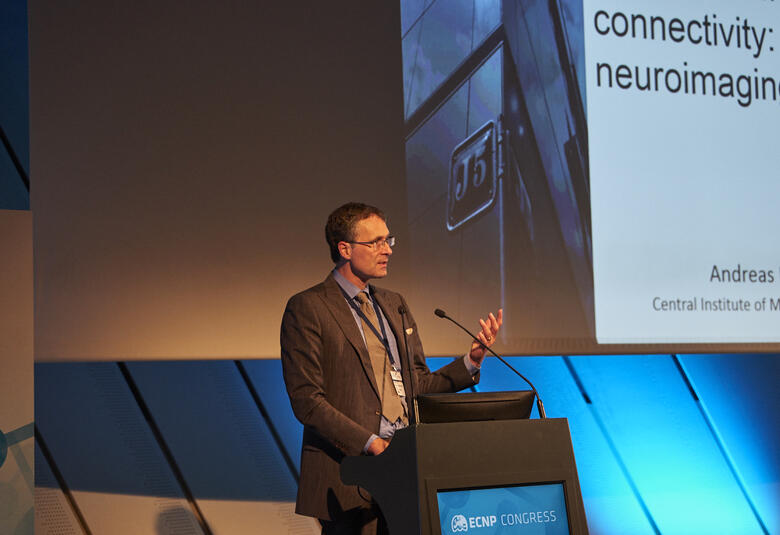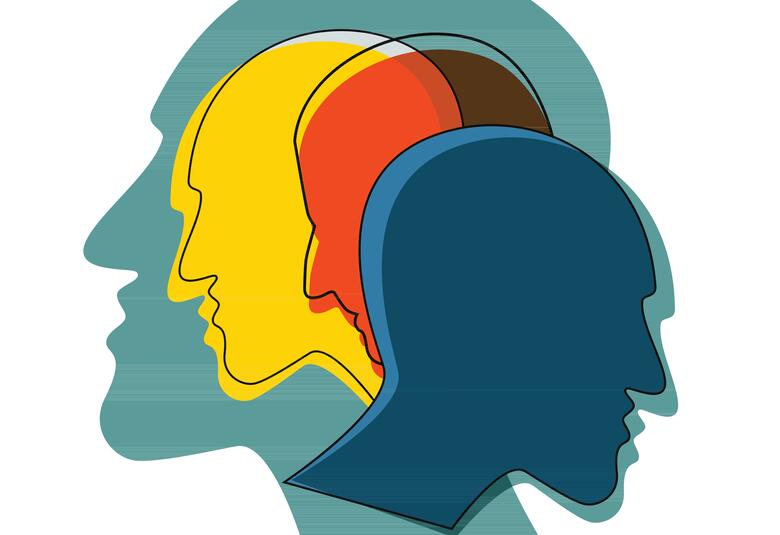Smartphones can track fine-grain physiology and changes in mood, allowing clinicians unprecedented real-time access to their patients’ feelings and behavior. And intelligent devices can successfully deliver tailored psycho-education. But unprecedent access to information brings issues of reliability and confidentiality
Psycho-education for bipolar disorder (BD) can be effectively delivered using a smartphone app. And, because the phone is used by the patient to provide clinically-relevant data, the educational message is tailored to the individual and his or her changing circumstances.
Psycho-education is complex but fits on the SIMPLe app
Smart way to meet demand
Diego Hidalgo-Mezzei (University of Barcelona, Spain) described how the SIMPLe app gathers daily information on patients’ mood, energy, irritability, sleep and adherence to medication.
In return, patients receive a psycho-education message specific to their circumstances and chosen from five hundred options. So it is a two-way street. And the 51 people with BD who took part in the feasibility study seemed satisfied. After three months, 76% were still using the app. Preliminary data suggest its use improves adherence, social functioning and eating patterns compared with the pre-app period.
To help create the sense of community offered by group psycho-education, patients can add their own messages to the library.
Longer-term, use of the app may drop off: retention rates in a larger study in progress are low at six months, with users reporting that the app is repetitive and burdensome. But by that time most of the psycho-education has been delivered.
Patients can add their own psycho-education message to the library
The app was developed in Spanish and is being translated into French and Italian. To further tailor its messages, a new version will incorporate data collection from a wearable device.
Passive collection of active data
Health insurance companies would like us all to have smartphones -- perhaps because apps can encourage us to adopt healthier ways of living, perhaps so that they can better adjust premiums to risk.
That aim relates mostly to physical wellbeing, but the collection of real-life data clearly has application to mental health. Patients’ reports of what they have been doing over the past month are unreliable for a range of reasons, including lack of insight, and strongly dependent on how they feel at the time of consultation. Collection of real-life objective data offers a new paradigm.
To take a simple example – cited by Kate Saunders (University of Oxford, UK) – the time it takes a patient to reply to a text query about mood is itself evidence about their mood.
Mood state relates to the time a patient takes to reply to a text
But the number of variables that can be measured is virtually infinite. In the context of BD, actigraphy and information about geolocation are particularly relevant.
Loads of information: all without asking
Time spent at home, time spent at work, calls received and made, exposure to light, body temperature – all could be helpful; and without having to ask the patient anything.
The availability of such detailed, relevant and objective information may mean that we can reduce the number of participants needed in clinical trials. And, in routine therapy, we should be able to gather evidence early about whether an intervention is having a helpful effect in an individual patient, Dr Saunders said. But work will be needed to sift from the mass of data the variables that are most clinically meaningful.
There are downsides to “life logging”
Some of the potential downsides of such “life-logging”, or “body hacking” – or however we like to term it -- were mentioned in the presentation by Maria Faurholt-Jepsen (University of Copenhagen, Denmark). By measuring things, we may change them. For patients to be constantly connected with a clinician can be stressful – to them and to family and friends. And there is the constant need to balance a sense of empowerment against a sense of surveillance.
Big Data is watching you!
The digital world brings unparalleled challenges in maintaining personal privacy and security. And much of the material our patients access is of dubious quality at best – and, at worst, potentially damaging to mental health, warned Michael Bauer (Technical University of Dresden, Germany).
An international survey found that around 80% of people with BD look up information about their disorder on-line; and two-thirds of them do not discuss with their physicians what they find. Perhaps we should ask our patients about the sites they consult, and seek to guide them to those that are the most reliable.
People who use the internet are not anonymous
The next step in digital evolution will be devices that recognize emotion based on our voices, facial expressions, body language and gestures. In this respect, people with mental ill-health may be a vulnerable group.
They are also vulnerable to being disadvantaged by the potentially discriminatory machine-generated algorithms that are based on our internet activities.
If we as doctors recommend a digital product to patients, we must make sure we understand how it may gather, analyze and sell on to third parties – often repeatedly -- the data that our activities generate.
Unprecedented data requires unprecedented efforts to ensure that those with access have a legitimate reason for knowing so much about us, and that the essential privacy of our data is preserved.



